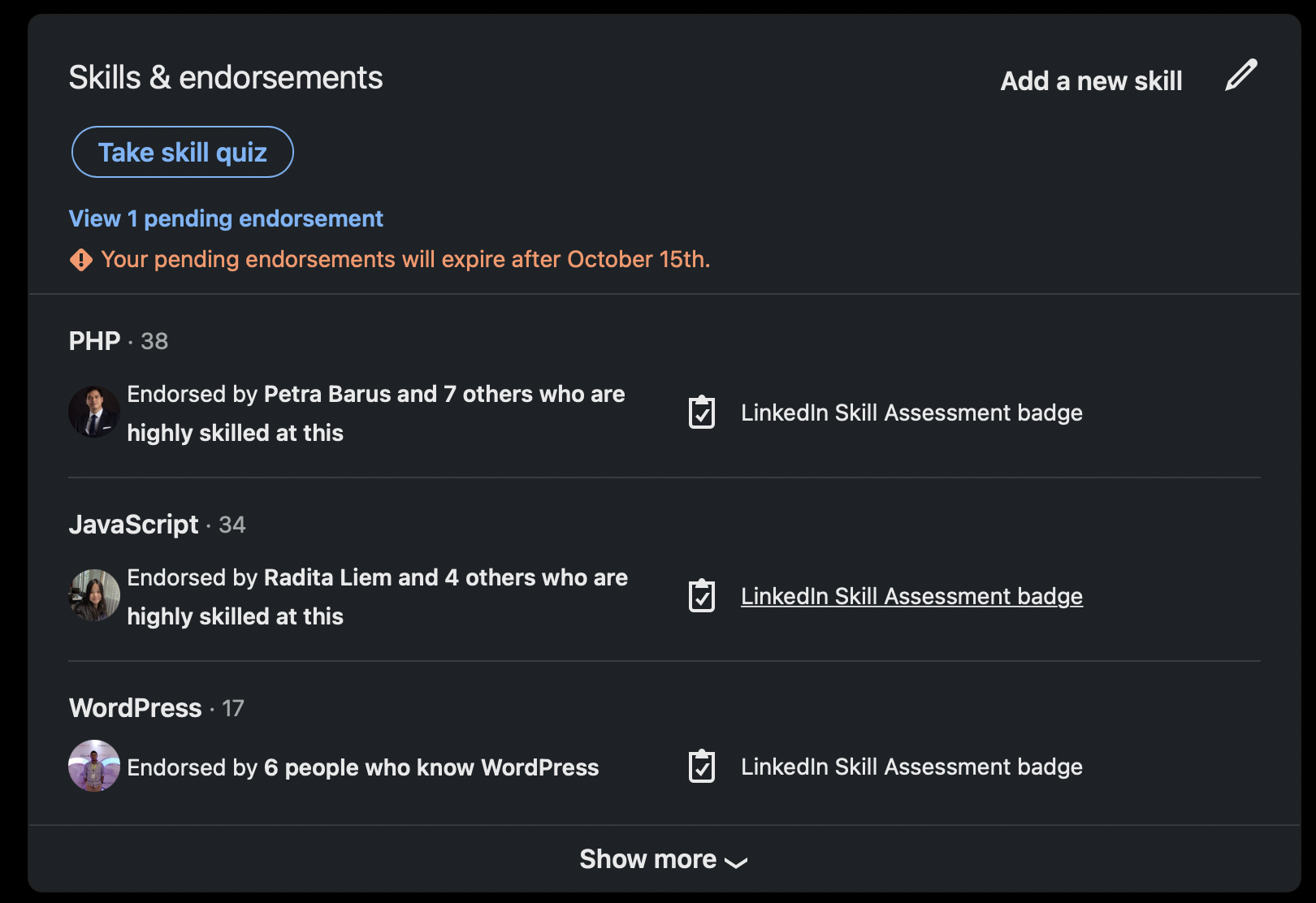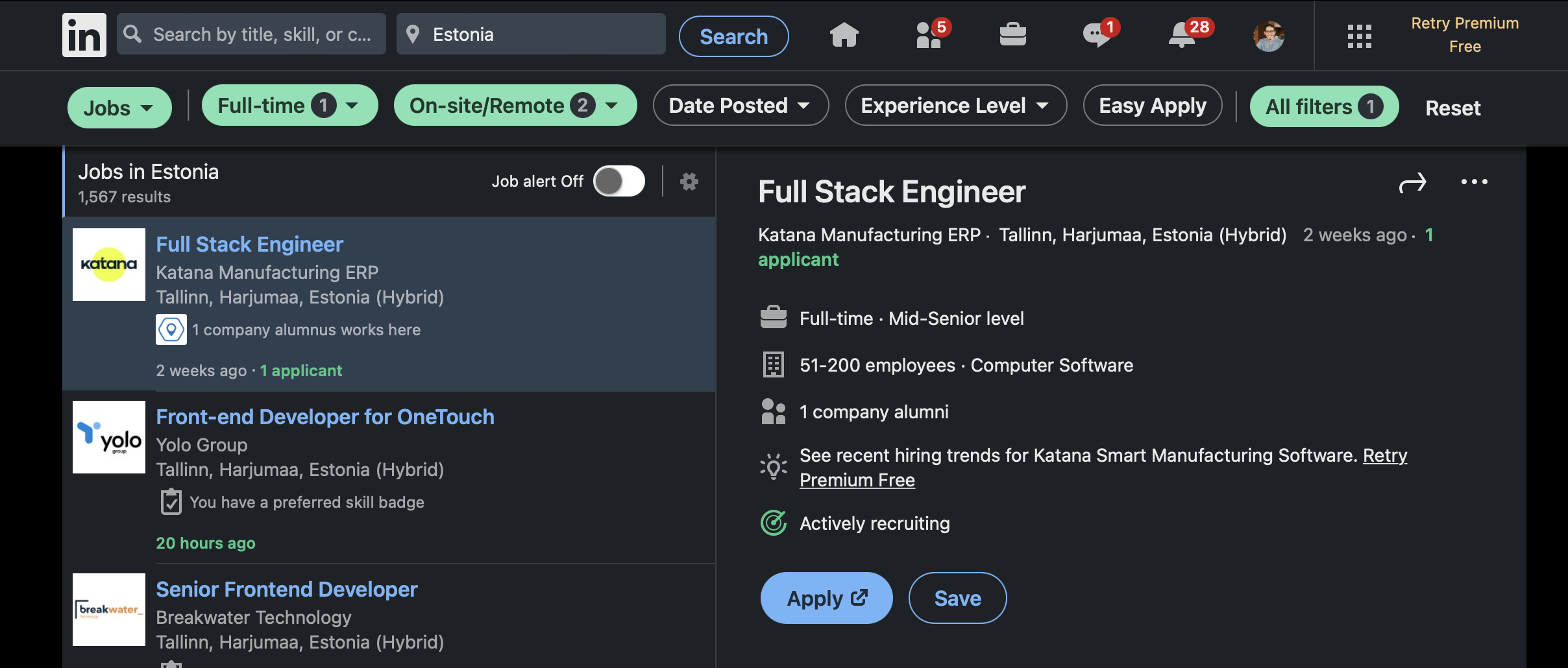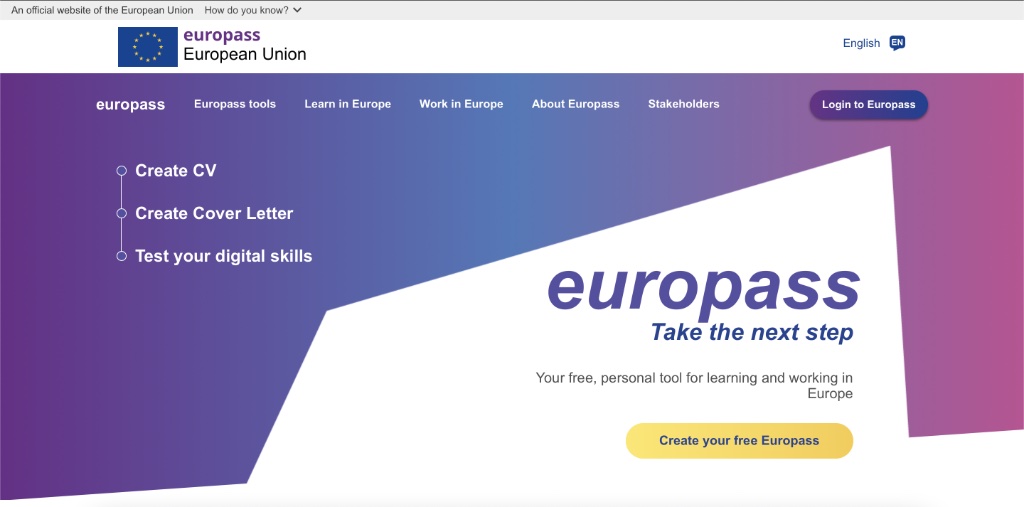
- 4/19/2022
- 5 min read
Finding A Job As A Software Developer Abroad
It has been six months since I moved from Denpasar to Tallinn, Estonia. It’s time for me to share my experience on how I landed the job as a software developer in Estonia during the pandemic - the time when it’s even more difficult than usual to travel abroad.

The very first thing that I did was to find the country where I want to go. Even though I really wanted to go to Finland or Estonia, during the job search I decided to expand the number of the countries I aim for to increase my chances. Because of that, I decided to seek jobs in several countries in the European Union that I find interesting. I simply thought, “I just need to move from Indonesia to one of the countries in the European Union. If after moving I still want to move to Finland or Estonia, I’ll look for another way.”
As a result, from about 90-ish job applications that fit my skill set, the majority of those were sent to Germany, Portugal, and the Netherlands. I even only sent three applications to Finland, and one application to Estonia. As you may have seen, that only one application is the one that landed me the job 😅
Some places to find job openings
Since my goal is to relocate or move abroad, I only applied to job openings that offer relocation packages or sponsor moving with the family. I skipped remote job openings.
My mainstay place to find job openings is LinkedIn Jobs. You can access this feature from LinkedIn’s main feature that says “Jobs”. I found this feature so powerful. What I did at the time was to set the job alert there. That way when there are new job openings, LinkedIn will send me emails. The criteria that I set for my job alert were:
- Full-stack developer JavaScript, PHP, or Ruby
- Located in Germany, the Netherlands, Portugal, Estonia, or Finland
- Full-time
- On-site or hybrid
How did I find out whether those applications offer relocation packages? Of course by reading the description in the job openings. What if they aren’t mentioned in the descriptions? In my case, I still applied since I could ask about them during the interview anyway.
How would you get interview calls if you’ve never sent any job applications? 🤷🏻♂️
My tip to maximize your LinkedIn use is to take the “LinkedIn skill assessment test” that relates to the skills you mention in your profile. You can do it by clicking the “Take skill quiz” button. Make sure you pass the test and obtain the “LinkedIn Skill Assessment badge.”

Doing so will help the LinkedIn Jobs algorithm to show job application recommendations that fit your skills. Have a look at my LinkedIn Jobs picture, there is a job recommendation that shows that my skills matched the job requirements with the “You have a preferred skill badge.”

What I really liked about LinkedIn Jobs is when there are job applications that feature an “Easy Apply” button. This allowed me to apply to jobs with a single click without needing to write new cover letters. The majority of my job applications were submitted via Easy Apply because I didn’t feel like writing personalized cover letters for dozens of applications.
Aside from LinkedIn, I also used the relocate.me site and manually browsed Career pages of Europe-based companies that I knew and wanted to work for.
Preparing the CVs
I recommend the Europass format when creating the CVs. It’s a very boring, but really effective format. This format really focused on your working experience. So, you won’t find CVs with weird designs or mentions of vague, self-proclaimed skill levels such as PHP 70%, JavaScript 80%, or Adobe Photoshop 7/10 🤪
The easiest way to create CVs in this format is by visiting the Europass European Union site. You can fill out your biodata and working experience, and then export them in ready-to-send PDF format on this site.
When applying for jobs at European companies, I recommend not including your pictures, date of birth, and gender. You can set that when exporting your CV in PDF format.
One quite interesting thing about this site is that you can save several versions of CVs and cover letters. This allows you to have a template when you need small personalization when applying for jobs, such as mentioning the name of the company you aim for, for example.

Apply as much as you can
This is my last tip if you really want to move abroad: stay persistent in applying. Apply as much as you can to increase your chances of getting the interview calls. From about 90-ish applications that I sent, I only got three interview calls - so you can roughly estimate the ratio.
Of course, other factors determine whether or not you will get the interview calls, such as working experience, skillset, and formal educational background. No need to worry too much about your educational experience, since it can be overshadowed by your working experience. The most important thing is to try.
I hope the above tips will help you to find jobs abroad, wherever your dream country is.